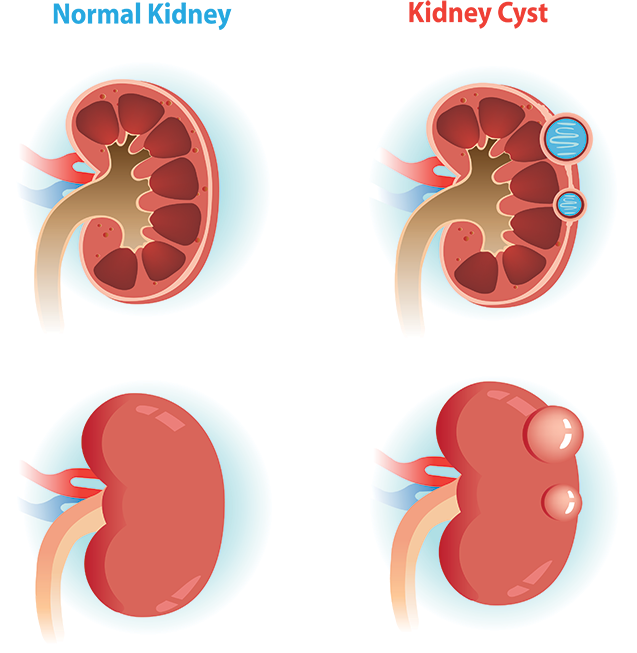Kidney cysts are round pouches of fluid that form on or in the kidneys. Most often, kidney cysts are a type called simple kidney cysts. Simple kidney cysts aren’t cancer and rarely cause problems.
It is not clear what causes simple kidney cysts. And its normal to have 3 or more cysts in each kidney after the age of 30 years.
Simple kidney cysts are often found during an ultrasound (or CT or MRI) for another condition. Treatment usually is not needed unless simple cysts cause symptoms.

So tell me more about what are kidney cysts.
Simple kidney cysts usually don’t cause symptoms. But if a simple kidney cyst grows large enough, symptoms may include: dull pain in the back or side, or fever (if they get infected; this is unusual).
It’s not clear what causes simple kidney cysts. One theory suggests that kidney cysts develop when the surface layer of the kidney weakens and forms a pouch. The pouch then fills with fluid, detaches and develops into a cyst.
The risk of having simple kidney cysts increases as you get older. But they can occur at any age. Simple kidney cysts are more common in men.
Kidney cysts may sometimes lead to complications, including:
We have described what are kidney cysts. We hope it has been helpful.
Here is more information on what are kidney cysts.